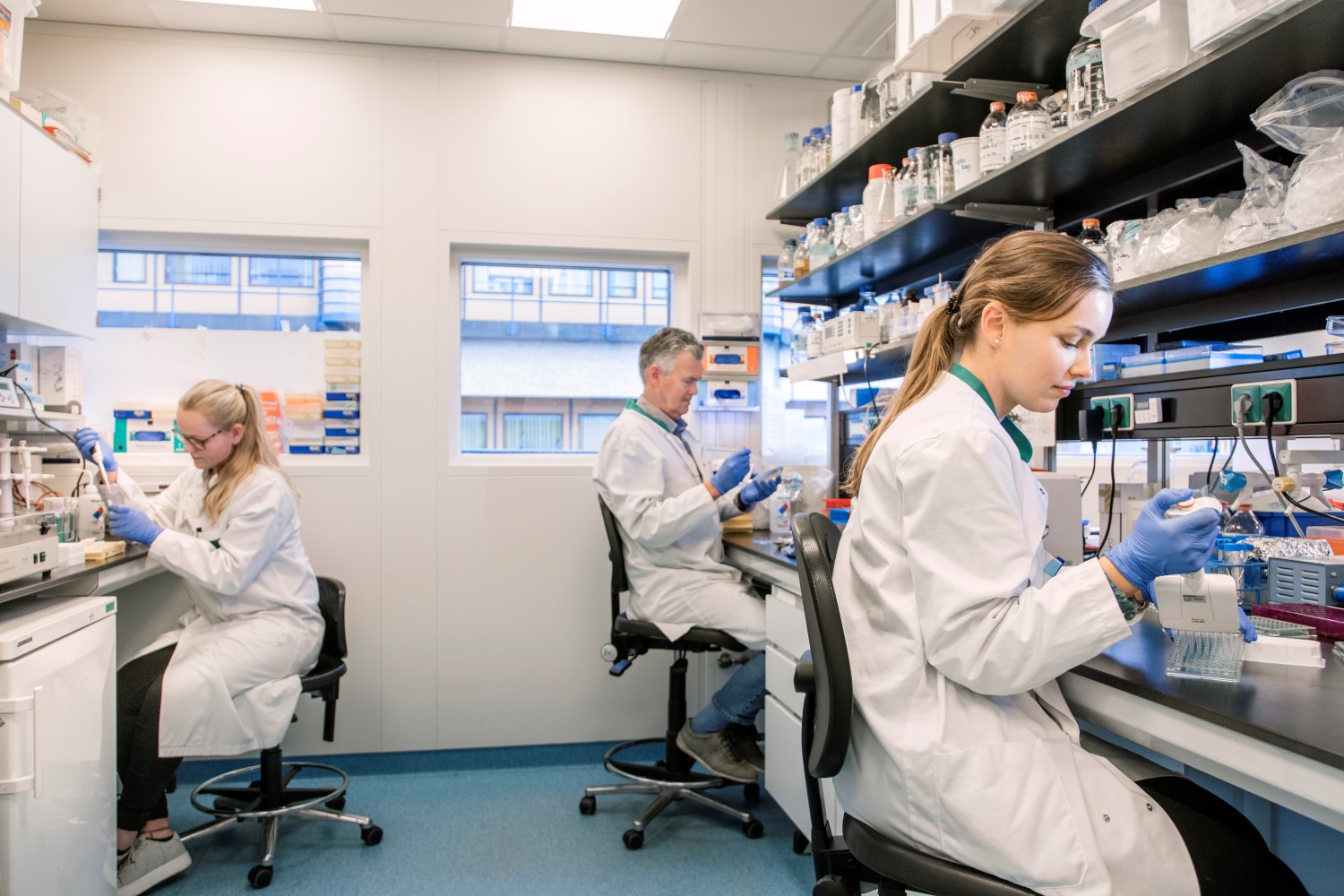Trouw lab – Complement and antibodies
1 The role of complement in the break of tolerance against post-translationally modified proteins
2 The development of novel antibodies to modulate complement activation
3 The circulating levels and biology of complement proteins in health and disease
&width=826&height=464)
The role of complement in the break of tolerance against post-translationally modified proteins
Autoantibody responses against post-translationally modified (PTM) proteins are implicated in autoimmune diseases like Rheumatoid Arthritis (RA) and Systemic Lupus Erythematosus (SLE). Our research hypothesizes that complement activation of PTM proteins facilitates the break of immune tolerance. We are investigating the role of complement in this process through protein biochemistry, mass-spectrometry, and in vivo models. Our ultimate goal is to block complement activation to prevent anti-PTM immunity and use this knowledge to enhance immune responses against pathogens and cancer.
…The role of complement in the break of tolerance against post-translationally modified proteins
Autoantibody responses against post-translationally modified (PTM) proteins are implicated in autoimmune diseases like Rheumatoid Arthritis (RA) and Systemic Lupus Erythematosus (SLE). Our research hypothesizes that complement activation of PTM proteins facilitates the break of immune tolerance. We are investigating the role of complement in this process through protein biochemistry, mass-spectrometry, and in vivo models. Our ultimate goal is to block complement activation to prevent anti-PTM immunity and use this knowledge to enhance immune responses against pathogens and cancer.
The development of novel antibodies to modulate complement activation
Currently, the clinical use of complement inhibitors is expensive and has side effects. Our research aims to develop alternative antibodies to modulate complement activation. Using FACS sorting, we select B cells, express antibodies, and engineer them to have optimal properties. These antibodies are tested in both in vitro and in vivo models, focusing on autoimmune diseases such as RA and SLE, as well as transplant rejection. Additionally, we are testing tumor-targeting antibodies with complement-activating properties in collaboration with immunotherapy groups.
The levels and biology of complement proteins in health and disease
C1q deficiency is linked to autoimmunity, and we are studying the mutations leading to C1q deficiency in collaboration with the Department of Rheumatology. Our research shows that both low and high levels of C1q are associated with disease, including active Tuberculosis (TB). We are investigating the role of upregulated C1q in circulation and tissue, and how this can be used as a biomarker or target for intervention. Additionally, we are studying the impact of local C1q production in immune responses, including pregnancy and tumor immune escape.